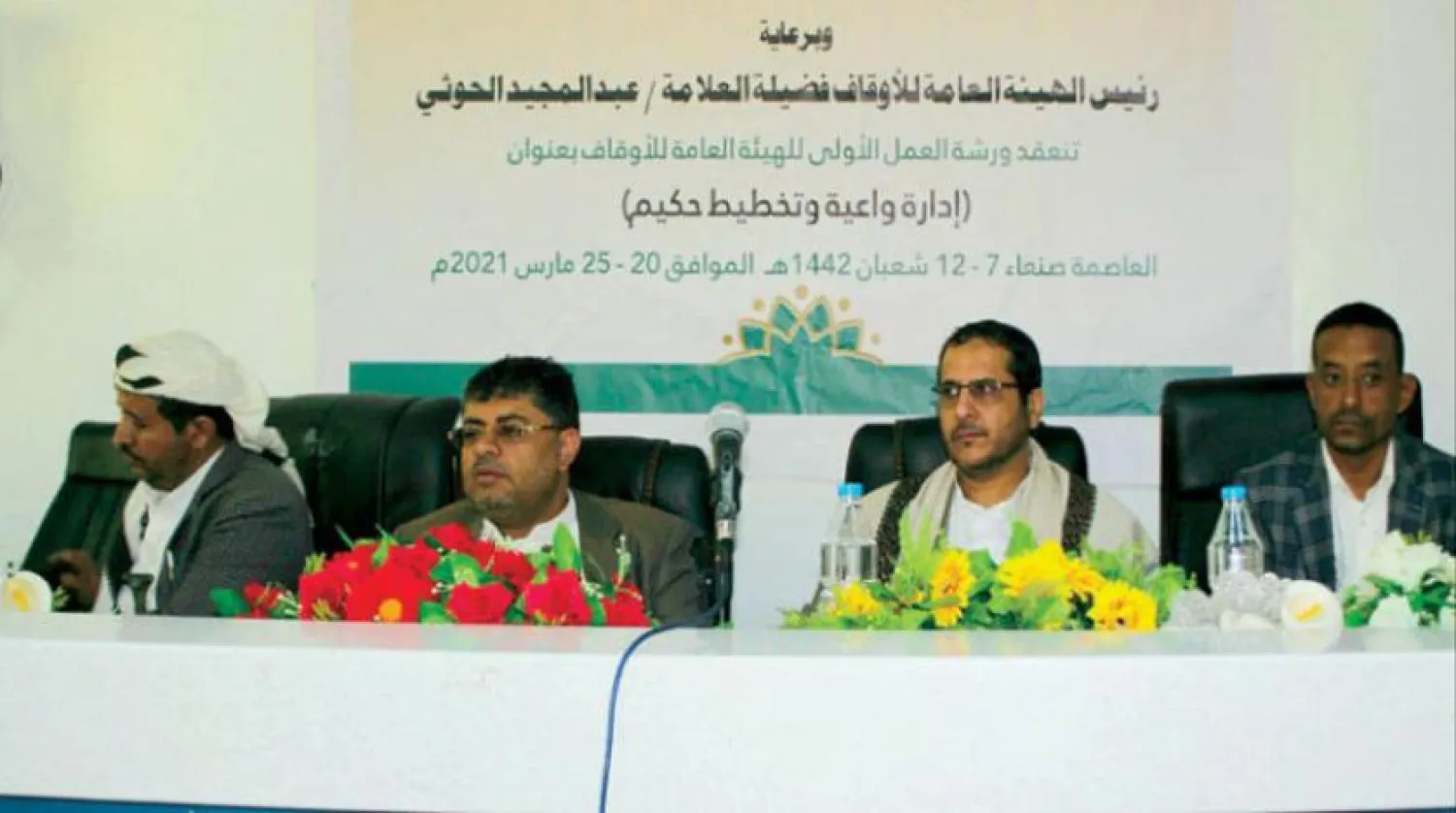The Houthi group continues to create parallel entities and bodies to replace state institutions despite its complete control over Sanaa.
Last week, the head of the Supreme Political Council, Mahdi al-Mashat, established the General Corporation for Electric Industries and Renewable Energy and appointed Abdul-Ghani Mohammad Hussein al-Madani as its head.
Madani manages about 200 commercial power plants in Sanaa and Hodeidah, and the revenues are allocated to the militia accounts.
A source in the Ministry of Electricity in Sanaa told Asharq Al-Awsat that the appointment is part of a strategic plan to transform the Public Electricity Company into a commercial investment sector that generates money for the militias.
The Company resumed operations after three years of interruption since the outbreak of the war. It stopped working in 2015, and citizens replaced it with expensive solar energy equipment.
Most solar energy businesses are loyal to the militias, which benefited from the suspension of power stations.
According to the source, when solar energy sales declined in the market after three years, the militias began operating the electricity stations in their control areas.
They sold energy to citizens at twenty-fold its prices before the outbreak of the war.
Militant economy
It is unclear how many entities the Houthis established, a source told Saba News Agency.
Economic researcher Wafiq Saleh told Asharq Al-Awsat that the Houthis implemented an organized plan to acquire various revenue-generating institutions and vital sectors to create a parallel economy at the expense of the private sector.
Saleh explained that the group also established new revenue bodies to double returns and ensure the flow of resources needed to finance the war.
He explained that Houthis have other goals such as eliminating state institutions, establishing a “parasitic” economy, limited to the ruling group belonging to a dynasty that controls Sanaa and the neighboring provinces to achieve sectarian, doctrinal, and divisive goals to undermine the Yemeni state and its legal and administrative systems.
He explains that the establishment of the General Authority for Endowments came to enable its supervision of the endowment real estate and investments and separate it from the control of the Ministry of Endowments and Guidance.
Saleh named some of Houthis’ alternate authorities, such as the General Authority for Zakat, to collect the mandatory charitable contributions, and the parallel Judicial system to control courts, judges, and notaries seeking to govern the real estate sector, which generates substantial annual revenues.
The so-called “Right”
Speaking to Asharq Al-Awsat, Researcher Fouad al-Maqtari believes that the creation of some of these entities is part of the conflict between the Houthi factions, citing the Endowment Authority that was created after the dispute between the group of Ahmed Hamid and Mohammad Ali al-Houthi over the revenues and activities of the Ministry of Awqaf.
The body also seeks to recover lands and real estate that allegedly belonged to the ruling families before the September 1962 revolution.
Maqtari warns there is a strategy to limit these properties and ensure their control with the newly created authority.
He stresses that by establishing parallel entities, Houthis seek to privatize state institutions for their benefit, employing a staff of their followers.
He warns that establishing these entities is “catastrophic” if Houthis maintain their control as it leads to having a state within the state.
The expert warned that the group would employ its supporters to ensure complete control and then let go of state employees later.
The so-called revolutionary committees were the basis for establishing these parallel entities.
After the Houthis took control of Sanaa in late 2014, the committees began to supervise various government departments and civil, security, and military state institutions under the pretext of fighting corruption.
The Houthis later appointed supervisors to manage these institutions, granting them illegal powers. As a result, they changed the administrative structure of the institutions, amended their tasks, and allocated their activities and resources to serve the militias and boost their influence.
The Houthis entities established: The General Organization for Electrical Industries and Renewable Energy and the National Authority for the Management and Coordination of Humanitarian Affairs and Disaster Response.
They also founded the Supreme Economic Council, an economic entity for collection, and other security units such as the National Center for Capacity Building and Decision-Making Support, the National Center for Arbitration and Settlement of Disputes, the Grievance Board, the General Authority for Tribal Affairs, the Security and Intelligence Services, and the Preventative Security.
















